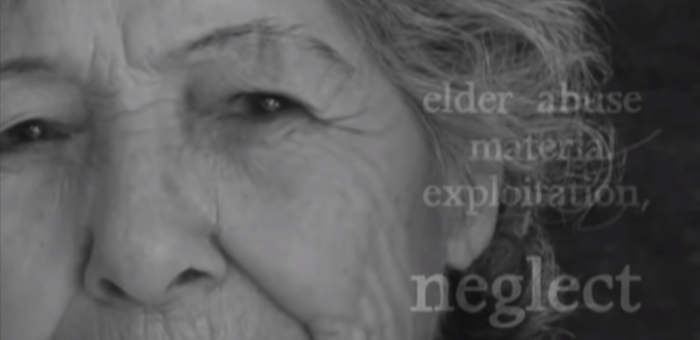Legal Protection for Elderly Americans
For too long, the United States had a silent crisis of elder abuse: the experience of neglect, exploitation, and physical or emotional abuse by older Americans. The Elder Justice Coalition advocated for over a decade for the passage of the Elder Justice Act (EJA). A partnership between the Coalition, WITNESS, the National Council on Aging (NCOA), and 17 elder rights advocates from across the nation produced a video as a critical way of exposing the crisis and advocating for change. On March 23, 2010, the Elder Justice Act passed.
WITNESS and its partners visited courageous American seniors in their homes to document their poignant stories about abuse, neglect and exploitation. With the video footage we produced a short documentary, An Age for Justice: Confronting Elder Abuse in America and over 100 video testimonies. These films and short messages were then sent directly to Congress with a request to pass the EJA.
While health care reform captured the national headlines, the EJA unquestionably deserves our attention. When asked about provisions of health reform that received little fanfare, former Health and Human Secretary Kathleen Sebelius pointed to the EJA — legislation that gives our nation a solid framework to protect seniors from being beaten, neglected and exploited. She stated, “[The Elder Justice Act] has been an issue talked about for a very long time . . . . It’s now the law of the land. It was part of the underlying Senate bill, and I don’t think many people have ever focused on the fact that this is an important step forward for seniors in America.”
The EJA is the most comprehensive federal legislation ever enacted to combat elder abuse. The EJA authorizes increased federal resources and leadership to support state and community efforts to prevent, detect, treat, understand, intervene in and, where appropriate, prosecute elder abuse. It also authorizes funding for broad-based education and awareness efforts.
We are grateful to all those who shared their story. As Pat Smith, one of the courageous seniors so succinctly states, “I don’t think this is an issue people like to think or talk about.” Video advocacy and the passage of EJA take us one step forward in making elder abuse a national conversation.
Want to learn more about current efforts to protect American elders? We spoke with Marci Phillips, the Director of Public Policy at the National Council on Aging (NCOA), on World Elder Abuse Day.
Image: Video still from ‘Age for Justice: Confronting Elder Abuse in America.’

